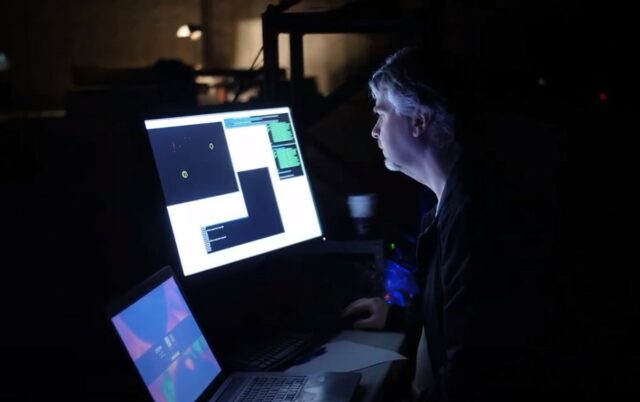
The magic of innovation can create entirely new worlds—and when Dell Technologies partnered with film director James Cameron’s company Lightstorm Entertainment, the result was the Academy Award-winning movie “Avatar: The Way of Water,” which pushed data-led filmmaking into a new realm of creativity.
Producer Jon Landau says there are two reasons why the new Avatar film is timely. One, audiences need a place to escape, and two, technology is finally at a point that allows his team to tell stories that could not be told 10 or even five years ago.
“I think the biggest practical shift in our production is we are 100% digital, and the volume of data that we need on this film to make it a reality is tremendous. Without the technological resources that are available today, we could not have made the movie,” he says.
The flash of inspiration

The availability of resilient, focused and scalable technology means companies can tackle challenges that might otherwise defeat them. As many as 86% of business leaders actively seek technologies that realize their innovation goals, according to Dell Technologies’ Innovation Index.
Lightstorm uses innovation to overcome fresh challenges daily. In an ultra-competitive industry, the entertainment company’s advantage is its pioneering use of technology. The production and IT teams embrace innovation at every opportunity. “If technology had remained stagnant, we wouldn’t be able to continue to push things and to entertain people in new and different ways,” says Landau.
“Avatar: The Way of Water” takes data-led filmmaking into a new dimension. The movie was created in stereo, live action, and 4K. More than 10 times the data was captured for the sequel to Avatar than the first movie, with 750 million real-time files and databases shared across eight global sites. The on-screen result is a seamless stream of eye-popping visuals. Yet Lightstorm faces a range of behind-the-scenes challenges to harness innovation and bring its stories to life.
Modern films are entirely digital, and the amount of data that Lightstorm’s IT team manages has increased exponentially. “Filmmaking is now data,” says Lightstorm CTO Tim Bicio, who adds that the amount of data collected during the Avatar movies is on a different magnitude than other films. Take the example of performance capture. Rather than just focusing on motion, Cameron’s film crew captures everything about an actor’s performance, from a minute facial expression to a slight elbow nudge.
Up to 26 reference cameras capture all the emotions of the film’s actors, including Sigourney Weaver, Stephen Lang and Kate Winslet. The results of this process are clear: it produces award-winning, never-seen-before experiences for moviegoers around the world. Yet innovation never stops. Telling compelling, visually stunning stories requires constant data capture—and that’s where Dell plays a crucial role.
Finding the best partner

Innovation is a team game. More than half (59%) of innovation leaders work with external partners to identify trends, forecast future needs and bridge skills gaps, according to Dell Technologies’ Innovation Index.
Lightstorm’s decade-long relationship with Dell began with the aim of improving the film production process. Landau’s film crew knew how much they relied on storing, sharing and backing up data, and they were looking for a “gold standard partner.”
Dell was the perfect fit for two reasons: high-quality technology and capable people who understood Lightstorm’s goals and worked in partnership to achieve them. Lightstorm uses high-speed, cohesive and scalable storage and server infrastructure.
Between the first and second Avatar movies, Lightstorm recognized the ever-growing importance of data in movies. It made the move to ECS, which allows the film crew to store unstructured data at scale with the reliability and control of a private cloud.
Bicio says the shift from tape-based storage to cloud means his IT team can support film crews quickly and effectively. “Being able to archive and tier data to our own private servers and replicate the data around the world and recall it almost instantly is super-important to us,” he says. Landau also says Dell’s support has been “priceless.”
Rather than the usual six weeks it takes to set up hardware, Lightstorm used its virtualized servers to cut deployment time by 96% and to scale up its infrastructure in a day and a half. Rapid deployment means the IT team and the film crew have more time to push innovation, helping to support the creativity that led to the recent Academy Award for best visual effects.
Working in combination

Despite the accolades for the first two Avatar movies, Landau wants to “up the bar” with every film. New advances in filmmaking mean more data and more challenges. Crucially, Landau says Lightstorm’s trusted technology partner always “strives for the next level.” By working with Dell, the entertainment company has scalable and secure IT foundations for more movie innovation, including further Avatar sequels with new biomes and new clans.
Lightstorm Entertainment has defined film innovation for a new era, creating stories that invite audiences into a new world of wonder, precision and imagination. As Bicio stated, “Good storytellers evolve their art in a way that continues to allow us to tell newer and more impressive stories.” The company has managed to innovate on both a technological and artistic level by utilizing partnerships that enable them to tell the stories and create the films that will engage audiences for generations to come.
James Cameron will be sharing more about more about this pioneering, data-led partnership in a Trailblazer session at Dell Technologies’ World next week. To view more on Lightstorm’s partnership with Dell, view the video below:
“Innovators We Love” is a series that highlights top innovative Dell partners who are impacting the world with innovative ideas and technological transformation. The series is inspired by Dell’s Innovation Index, which provides insight on what global decision makers are doing to create innovation resilience in turbulent times.

